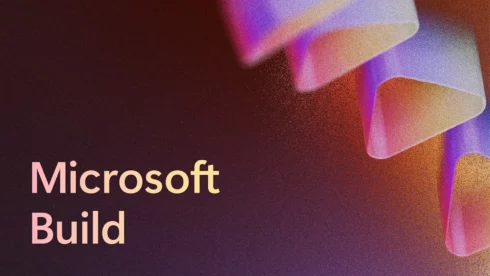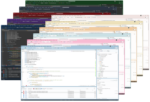
Microsoft Build kicks off today, and Microsoft started off the event by introducing a number of AI-powered features designed to enhance the software development experience.
A new coding agent has been added to GitHub Copilot that gets activated when a developer assigns it a GitHub issue or calls it via a prompt in VS Code. It can assist with a number of tasks, including adding features, fixing bugs, extending tests, refactoring code, and improving documentation. All of the agent’s pull requests require human approval before they run, GitHub confirmed.
Microsoft also announced Windows AI Foundry, a platform that supports the AI developer life cycle across training and inference. Developers will be able to manage and run open-source LLMs through Foundry Local or bring proprietary models and convert, fine-tune, and deploy them across clients and cloud.
The company also announced it will be bringing Grok 3 and Grok 3 mini models into Azure AI Foundry. At this point, Azure AI Foundry hosts over 1,900 models from Microsoft and other partners.
Improvements to working with AI agents
Azure AI Foundry Agent Service is now generally available, providing developers with capabilities that will enable them to orchestrate multiple specialized agents. Plus, the company updated Azure AI Foundry Observability to provide better metrics on performance, quality, cost, and safety of AI models.
Microsoft also revealed a preview of Microsoft Entra Agent ID, which can automatically assign unique identities to AI agents created in Microsoft Copilot Studio or Azure AI Foundry.
Next, the company announced Microsoft 365 Copilot Tuning, which allows developers to use their own company’s data, workflows, and processes to train models and create agents. It also added multi-agent orchestration in Copilot Studio, allowing developers to connect multiple agents to combine skills so that they can tackle more complex tasks.
Support for the Model Context Protocol (MCP) was also added across Microsoft’s platforms and services, including GitHub, Copilot Studio, Dynamics 365, Azure AI Foundry, Semantic Kernel, and Windows 11. Microsoft has officially joined the MCP Steering Committee and announced two contributions to MCP as well: an updated authorization specifications and the design for an MCP server registry service that would allow anyone to implement centralized repositories for MCP server entries.
And finally, Microsoft announced a new open source project called NLWeb to help developers create conversational AI interfaces for their websites using any model or data source they’d like. NLWeb endpoints also act as MCP servers, so developers will be able to easily make their content discoverable to AI agents if they’d like.
“We envision a world in which agents operate across individual, organizational, team and end-to-end business contexts,” Frank X. Shaw, chief communications officer at Microsoft, wrote in a blog post. “This emerging vision of the internet is an open agentic web, where AI agents make decisions and perform tasks on behalf of users or organizations. At Microsoft Build we’re showing the steps we’re taking to make this vision a reality through our platforms, products and infrastructure. We’re putting new models and coding agents in the hands of developers, introducing enterprise-grade agents, making our platforms like Azure AI Foundry, GitHub and Windows the best places to build, embracing open protocols and accelerating scientific discovery with AI, all so that developers and organizations can go invent the next big thing.”






